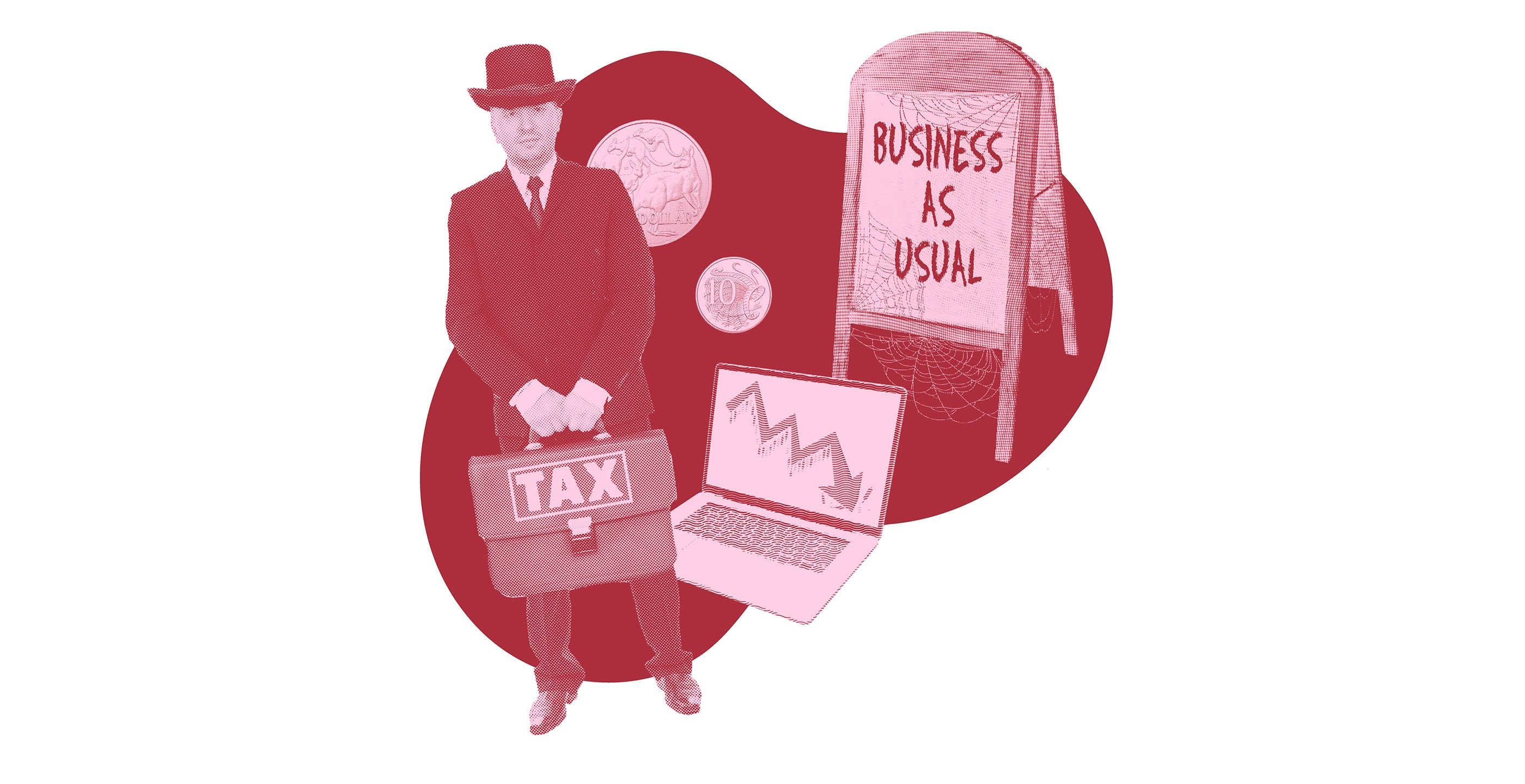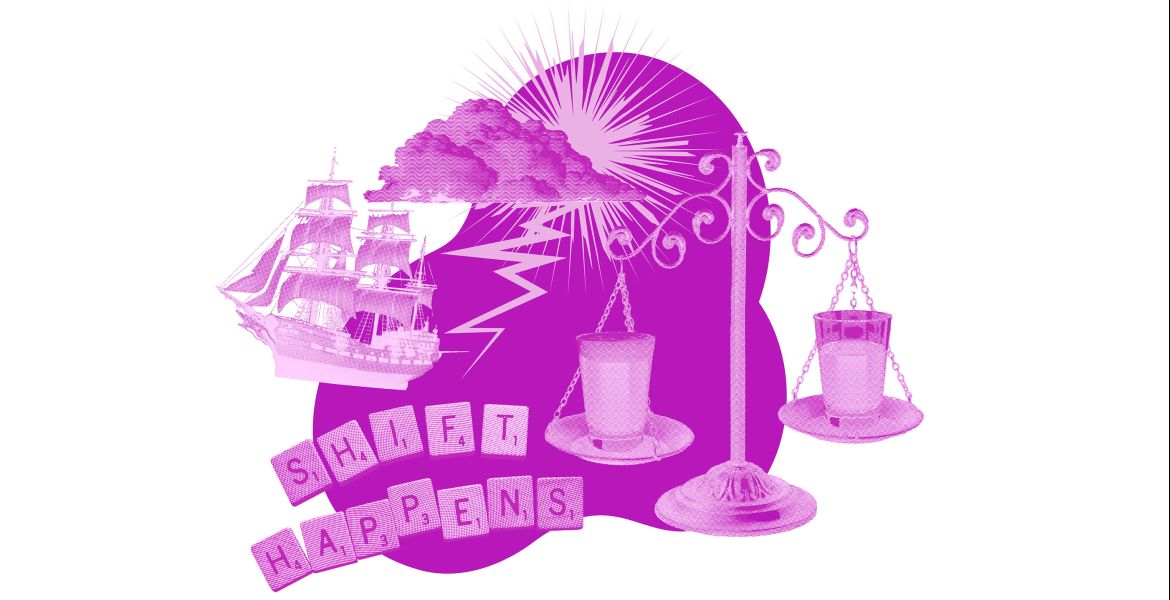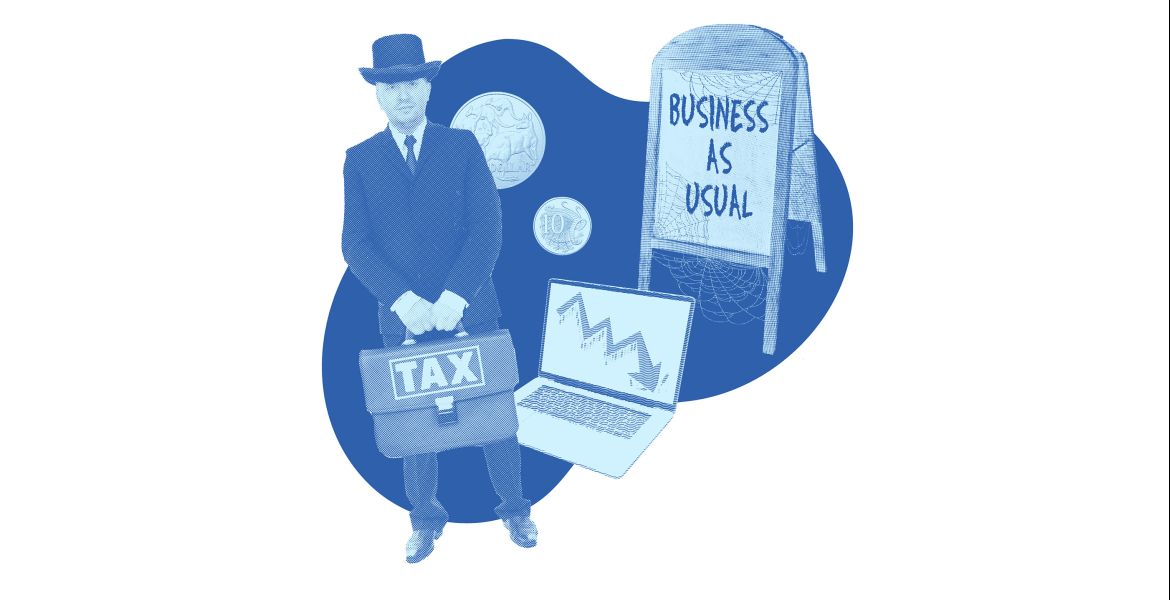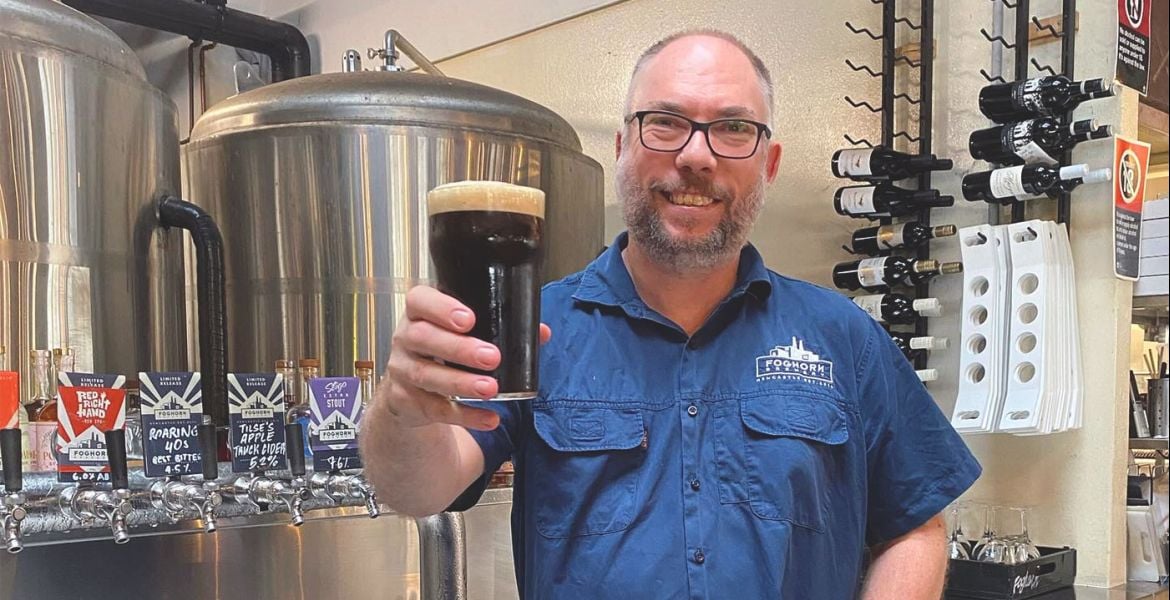In part one of The Secret Brewer: Voluntary Administration, a brewery owner discussed a number of their concerns surrounding the impact of two years of VAs across the local beer industry.
We put a number of questions raised by the article to the people running breweries that have been through the VA process in the past 12 months and emerged with some of all of the previous ownership teams still in the business. Below are the responses of those who replied – along with comments from the CEO of the Independent Brewers Association (IBA).
Brewing is far from the only industry to have suffered in the face of the global economic woes of recent years, but its challenges have been more acute than most as small businesses have been battered by a relentless barrage of blows unique to the industry.
As Peter Philip, owner of Sydney-based Wayward Brewing, puts it: "Indies are taking a beating from every angle: higher input costs, never-ending excise increases, aggressive tap contract enforcement from Asahi and Kirin and, of course, the proliferation of 'craft' brands from the two big retailers is making it hard to make anything on the beer we're selling."
The confluence of so many factors, especially coming on the back of the COVID lockdown years, which themselves followed a decade-plus of exponential growth, has had a devastating impact on many small businesses. Some have closed, many are for sale – publicly or otherwise – and there has been a steady stream of brewing companies entering – and in most cases exiting – periods of voluntary administration.
In part one of this two-part mini-series, we published an article from a brewery owner discussing their concerns about VAs, in particular the negative impact they believe their frequency is having on other businesses, the industry as a whole, and consumer confidence.
Here, a number of those running businesses that, like Wayward, have been through a period of administration over the past 12 months offer their responses to the questions posed by that article, as well as some of the commentary elsewhere that has often accompanied the announcement of each VA.
Kylie Lethbridge, CEO of the IBA which represents hundreds of the country's indie brewers, says: "The ramifications for the industry have been wide-reaching. It is also not simply the VA processes that have contributed to the current situation – many breweries have lowered production, been forced to reduce their workforce and cut non-essential spend such as marketing.
"From our perspective, these issues compounded have led to wider ramifications for the supply chain and the industry as a whole. Those ramifications have impacted the breadth and depth of the industry and, in my opinion, are the greatest threat to the collegiate and unified culture we have enjoyed for many years. Not only is it affecting the way brewers deal with each other, but we have also seen a tightening up of purchasing arrangements, and a lessening of trust by our long-term and loyal industry supporters."
She believes the subsequent "reduction of funds to invest in industry development activities, sponsorship and a weakening of key relationships" pose "the greatest threat to our industry being able to climb out of the current situation."
Below, alongside more from Kylie and a business owner who preferred to remain anonymous, are responses from:
- Jason Harris and Craig Basford, founders of Big Shed Brewing Concern in Adelaide. They appointed administrators in February 2024, tracing their issues back to significant investment in the business when they moved to their current site the year before the COVID pandemic arrived.
- Mazen Hajjar, founder and CEO of Hawkers Beer, the Melbourne-based brewery that went into administration in the same week as Big Shed, citing challenges including market access and the impact of the introduction of Victoria's container deposit scheme (CDS).
- Nick Boots, newly-appointed CEO of Black Hops Craft, which acquired Black Hops Brewing from administrators earlier this month.
What impact do you believe the significant number of VAs over the past two years has had on the brewing industry?
Jason Harris & Craig Basford: We have seen a variety of reasons for VA, and there is no one single reason as every business is different. We would say the impact has been both positive and negative.
Not everyone comes out of VA, when they don’t customers lose their favourite products, shareholders/investors, suppliers and the ATO lose their money and people lose their jobs. Owners can lose all that along with their houses and life savings. This is the tragic side of this conversation, one that can get lost in the talk about businesses "deliberately screwing the ATO" and alike.
I do think, though, that the spate of these VAs has shown people cannot simply take it for granted that their favourite beer will be there forever, and that they need to support them by buying when they can. It's also brought a spotlight on the problems in the industry around tap lockouts (that’s what they are) and excise that the multi-national breweries simply don’t need to care about because of their scale and market domination.
It’s a nonsense to think that all these breweries suddenly forgot how to run [their business] and there aren’t bigger issues at play.
Nick Boots: It’s not good for two reasons. Firstly, it stifles and restricts investment in the industry from people outside the industry, which needs external investment to keep growing and improving. A lot of people who don’t understand the industry are spooked and will invest their money elsewhere.
Secondly, particularly for high profile breweries, like Deeds, Wayward and Black Hops, it gets picked up by the mainstream press and consumers and trade maybe misread it for liquidation. I’m currently battling a misinformation problem in that trade thinks Black Hops has gone under when its assets have been sold and it’s business as usual.
Then there’s what [the coverage] says about craft beer in general – that it’s a fad that’s finished now and everyone can get back to drinking their mainstream lager, when it hasn’t died, the industry is actually flat / mature after many years of exponential growth which would have never continued in any industry.
Anonymous: What happened is a natural progression of a maturing industry combined with the uniqueness of a market downturn and inflation due to a pandemic occurring in a globalised modern environment.
Ultimately, this is just what happens when industries experience downturns. Other industries don’t pause and have conversations about how the more successful ones are upset by the ones that failed.
Do you think this ongoing series of administrations could have an ongoing impact on relationships breweries have with suppliers and the ATO?
JH & CB: It will no doubt have the ATO being harder to negotiate with, that is obvious. We hear stories about people entering VA simply because the ATO won’t negotiate a payment plan that is sustainable. We have no idea how true that is but it would be logical that they would be less accommodating than they may have been previously.
A lot of the tax debts were accrued during the COVID lockdowns so we have a situation where taxes were being accrued but revenue was not being created. Now they want people to pay the back tax, plus the new tax on revenue that has not rebounded like many thought it might.
The government of the time was patting itself on the back for its response, but the reality is they didn’t fix anything, just kicked it down the road and that’s what we are seeing now. The days of the "bank of the ATO" are over. I just hope that they look at the tax setup as it's clear that there is an issue when so many businesses buckle under its weight.
KL: Absolutely – the less money in the supply chain, the less we are all able to achieve. We have felt this impact in a significant way this last six months more than ever. In my opinion, the ATO will never change, it will never relax its almighty power to lessen the pain for any one industry, so I strongly doubt there will be any relief come from them unless their political masters make it so.
NB: I think it leads to a loss of confidence in the industry. We all benefit when the ATO and suppliers are confident – better repayment terms, better prices, more product development. At the moment, obviously they are reducing their payment terms to the industry – even those doing the right thing – and they’re also increasing their costs to cover losses from those that went into VA.
I can understand others saying: “Thanks, guys. A portion of my price rise is because of you.” We’re trying to get trading terms [for Black Hops’ new owners] and being told we’re on COD [cash on delivery] for six months. We’re a new business with no trading history but they are just so watchful and bearish.
MH: It doesn’t affect relationships with the ATO as they are completely neutral.
The constant question is how much is this costing the taxpayer, but the taxpayer isn’t out of pocket. It’s not like when the government cancels an infrastructure project or when the car industry was being propped up by the government. The government only loses in terms of potential revenue.
What role, if any, do you think the “price war”, or proliferation of $200 or cheaper kegs from indie brewers, has played in the wider challenges faced by the industry, and voluntary administrations more specifically?
JH & CB: I think any "price war" is a symptom rather than a cause of the issues. People need to turn stock into cash faster for cashflow.
All of hospo is struggling which means our customers are taking longer to pay than usual. Wider economic issues like interest rates and cost-of-living increases mean people have less to spend so pricing becomes even more of a focal point to get what little discretionary spend there is out there.
The tap lockouts mean that as indie brewers we are fighting even harder for very limited space which in turn creates an environment that people are cutting off their noses to spite their face with price. Everything in brewing has increased in price, yet here we are fighting to get a price as low as possible, it's madness.
NB: My view is that you only sell beer for $200 a keg when you’ve got incredibly low COGs [cost of goods], which nobody except CUB or Lion has, or you have a weak brand and / or poor quality. I think $200 kegs just mask a wider problem with a number of breweries who are just trying to keep themselves alive.
I don’t blame them, however I certainly don’t like it and can’t see how they will ever dig themselves out of that type of discounting cycle. How do you sell a $280 keg when the trade customer says they were $200 just six months ago?
What do you think of the suggestion by many brewers that the businesses that have restructured their debts via the VA process have gained a financial advantage over their peers?
JH & CB: I am struggling to see the logic here. You could possibly mount a case to say that they were at an advantage as debts created in the past are restructured, but that doesn’t affect debts in the future. Once through VA – assuming you make it through, remembering that the company’s future is decided by creditors and creditors only – you basically start again from zero.
You by and large don’t have credit terms with suppliers, the ATO will review how your excise will be payable, and you will have a DOCA and administrators to pay. All this and you are still dealing with a depressed wholesale market that can be slow to pay and getting slower. You are still locked out of taps and still have people doing crazy things to get them.
If anyone thinks this gives a business a financial advantage they are welcome to avail themselves of what is a legal process. Do it and understand the stress it puts the people who pour their hearts and souls into this industry, the owners and the employees. Do that and tell me how good the "financial advantage" is.
Anon: Every situation is unique. Businesses that were growing fast took on extra staff and related structural commitments to meet growth, only for the industry to crash. At the same time, new breweries opened, bringing increased competition, the national retailers deleted indie brewers' beers after launching their own products, many people switched to drinks other than craft beers, while input costs skyrocketed everywhere.
It's also worth remembering that the businesses that have gone through administration are run by humans, some of whom have lost life savings, let staff go, cut their own pay, abandoned family holidays, remortgaged their houses and now carry bad credit ratings on account of being a director trying to save a business and the remaining people you employ within it.
MH: Voluntary administrations are not being taken advantage of – they are there to deliver the best possible outcome for creditors, not shareholders. You lose control of your company for a period until the administrator decides it’s in the best interests of creditors.
You don’t gain an advantage because your cash flow goes backwards, not forward.
NB: On the surface it must look like that. But when you speak to these guys you understand how much pain they’re having to go through by going back to COD for everything, by not being able to access new accounts, by mainstream media picking up their story and telling people they’ve died, staff quitting and moving to more secure employment.
Time will tell but I think the pain is significant and I’ve seen what happens to revenue for breweries that go into VA. If I had a choice I don’t think I would choose do it.
Do you think the ongoing series of administrations undermines or in any way impacts the IBA’s lobbying efforts with the Federal Government?
KL: It is very hard to tell as we have worked very hard to educate, inform and build relationships in government. It seems they are currently blind to our issues and simply see our 600-plus small businesses as a revenue line rather than manufacturers, innovators, creators, tourism destinations and employers.
There has definitely been a change in our relationship with agencies like the ATO as it seems they are not only continuing to be inflexible but they are also auditing, clamping down and introducing new directives to make it even harder for those in trouble to survive. This has ultimately affected all breweries rather than those who are on the precipice of VA or liquidation – so, yes, I do believe it has had a broader impact.
However, I would also highlight the fact that I do not agree with the accusations and negativity that has been levelled at the businesses who have gone into voluntary administration, the small business restructuring program, or been liquidated. Each and every one of those situations were different and I do not believe it is our right to assume we know the detailed circumstances of their situations – our people have their houses on the line, have had their dreams shattered and have impacted their loyal and valued employees and valued supply chain partners. This is not something anyone would want to do willingly – especially when it is all done in the public eye which, because of social media, makes the situation a million times worse for them.
The Crafty Pint contacted all brewing companies that have been through administration in the past 12 months prior to publication.
On July 1, we'll take a look back at a brutal six months for the beer industry and examine what might lie ahead.




















